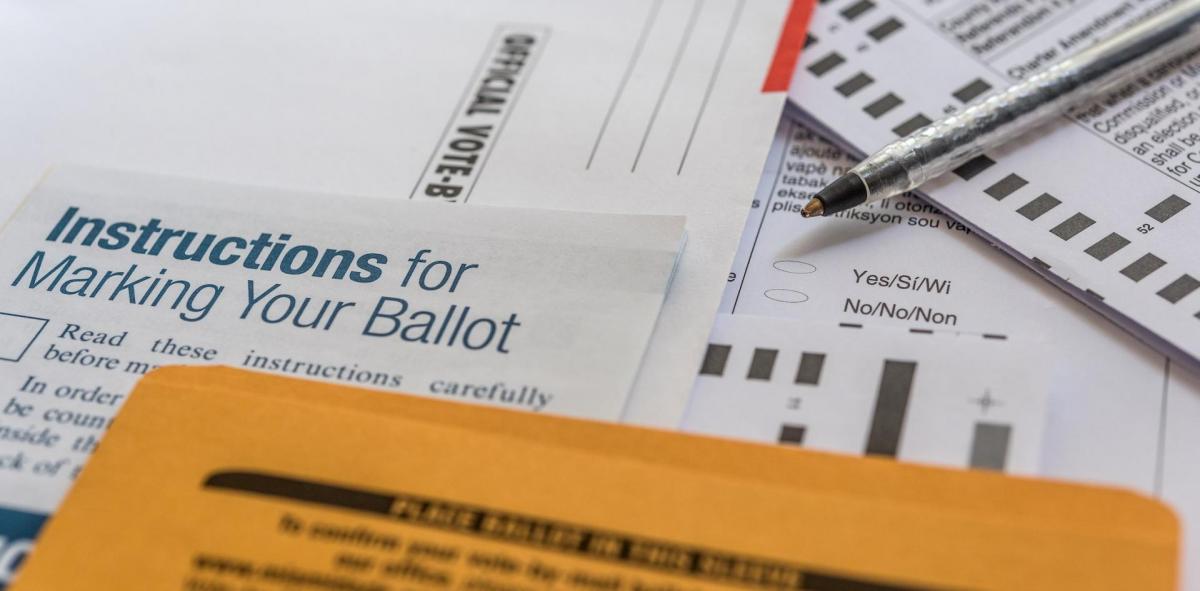Tag: missouri
-
Four state legislatures have passed bills ending judicial deference in 2025, most recently Missouri and Oklahoma

What’s the story In the 2025 legislative sessions, Kentucky, Oklahoma, and Texas enacted laws prohibiting judicial deference by state courts to state administrative agencies. In a fourth state, Missouri, the legislature approved a bill and sent it to the governor’s desk. It had not been signed as of June 13. Three states were Republican trifectas.…
-
Ballot measure update: Texas adds 7 more for 2025; Alaska campaign finance and Missouri abortion measures certified for 2026

The number of certified statewide ballot measures for both 2025 and 2026 is trending above average compared to previous election cycles as of May 27. 2025 ballot measures For 2025, 22 statewide ballot measures have been certified in six states—Colorado, Louisiana, Ohio, Texas, Washington, and Wisconsin. This is nine more than the average of 13…
-
Missouri voters to decide on overturning abortion rights amendment, banning gender transition procedures for minors

The Missouri State Legislature placed an amendment on the ballot that would overturn Amendment 3 (2024), which amended the state constitution providing for the fundamental right to reproductive freedom, including abortion. Voters will decide on the new amendment in November 2026. This will be the first state where voters will be deciding to overturn an…
-
Two candidates are running in the general election for mayor of St. Louis on April 8, 2025

Incumbent Tishaura Jones and Cara Spencer are running in the general election for mayor of St. Louis on April 8, 2025. This contest is a rematch of the 2021 election, in which Jones defeated Spencer 52% to 48%. Both candidates are affiliated with the Democratic Party. In the four-person primary, Spencer received 49% of the…
-
Missouri is the 39th state to legalize sports betting after ballot initiative approval. Where else is it legalized?

After Missouri voters approved Amendment 2 on Nov. 5, 2024, Missouri became the 39th state to legalize sports betting. After the results of the election were certified on Dec. 5, 2024, sports betting officially became legal in the state. Voters approved Amendment 2, with 50.05% voting in favor and 49.95% opposing. While sports betting is…
-
Missouri withdraws appeal in ESG lawsuit

Missouri Attorney General Andrew Bailey (R) announced the state will withdraw its appeal of a court ruling overturning two anti-ESG investment rules. The rules would have penalized asset managers who invested based on ESG factors without the written consent of their clients. The withdrawal leaves the constitutional question for similar rules unsettled in U.S. courts.…
-
Missouri voters will decide on a ballot measure to provide for a 14th casino in the state, located on the Osage River

In November, Missouri voters will be deciding on a constitutional amendment that would allow for an additional gambling boat on the Osage River. This would be the 14th casino to operate in the state. The measure, known as Amendment 5, is one of six measures that Missouri voters will decide on Nov. 5, 2024. The…
-
Court blocks Missouri anti-ESG rules
A federal court last week threw out two 2023 Missouri rules that limited ESG in investment plans. The court argued the rules conflicted with federal law. Ballotpedia tracks support for and opposition to the environmental, social, and corporate governance (ESG) investing movement. To learn more about arguments for, against, and about ESG, click here. For…
-
With certifications in Arizona and Missouri, voters in eight states will decide on abortion-related ballot measures in 2024, the most on record for a single year

Voters in eight states—Arizona, Colorado, Florida, Maryland, Missouri, New York, Nevada, and South Dakota—will decide on abortion-related ballot measures in Nov. 2024. This is the most on record for a single year. Initiatives are pending signature verification in three additional states—Arkansas, Montana, and Nebraska. Measures were most recently certified in Arizona and Missouri. On Aug.…


